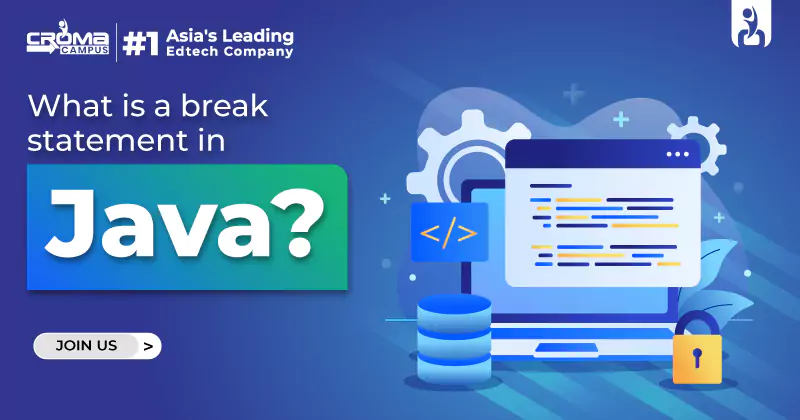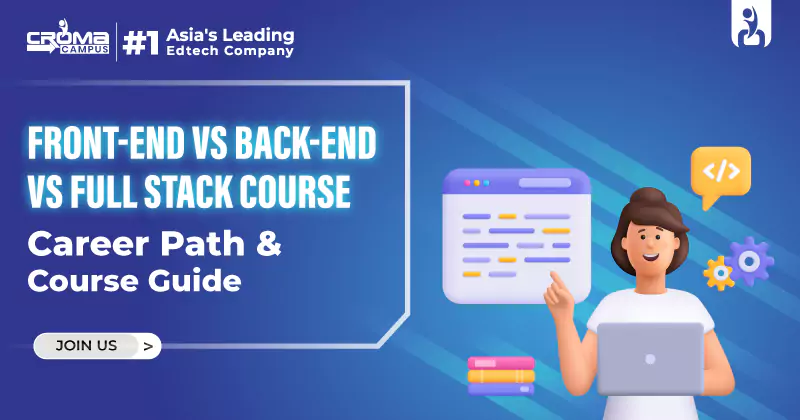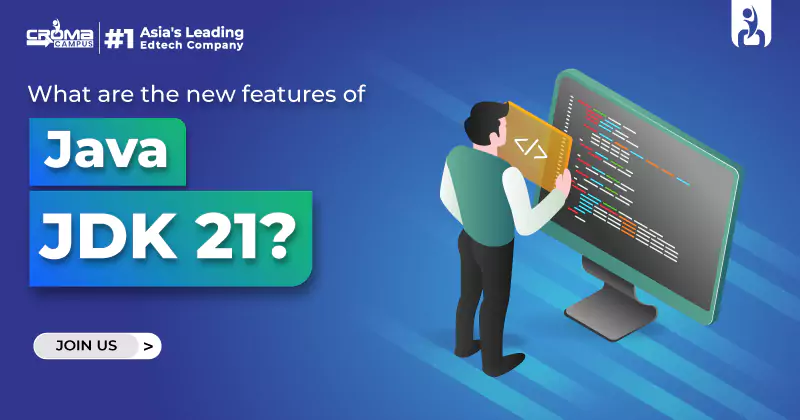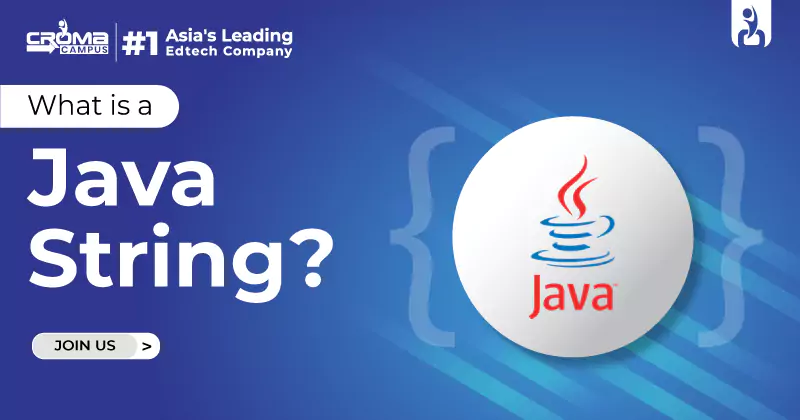What Is Memory Management In Java?
4.9 out of 5 based on 14523 votesLast updated on 30th Oct 2025 28.4K Views
- Bookmark

Memory management means how the program uses space. When a new object is created it takes space in memory.

Introduction
Java is a strong language. It helps people build big apps. Memory is very important in Java. Memory is where data lives. When you write Java code the program needs space to run. This space is called memory. If memory is not used well then the app will be slow. This is why memory management is important. It helps the app work fast. You can learn more about this in a Java Full Stack Course Online.
The course can show you how Java takes care of memory. It also teaches you how memory makes the app better. If you want to study in a city, then a Java Full Stack Developer Course in Pune can help. Pune is a big city with many tech jobs. The course in Pune shows you real Java memory cases. This is good for people who want jobs in Java.
What is Memory Management?
Memory management means how the program uses space. When a new object is created it takes space in memory. If the object is no longer needed it should be cleared. If it stays then memory is full. This is called memory leak. Memory management keeps the app safe from leaks. Java has tools for this. The Java Virtual Machine or JVM helps. It divides memory into parts. Each part has a job. Some parts hold objects. Some parts hold methods. Some parts hold data. This makes the program run well.
The Role of JVM
JVM is like the brain of Java. It looks at the code. It runs the code. It also manages memory. It gives memory when an object is made. It takes memory back when the object is not used. This process is simple. You make an object. JVM gives memory. The object is used. Then the object is free. JVM takes memory back. This keeps memory safe.
Heap vs Stack
| Feature | Heap Memory | Stack Memory |
| Stores | Objects and instance variables | Local variables and method calls |
| Size | Larger but slower | Smaller but faster |
| Life | Long-lived | Short-lived (method time) |
| Access | Shared among all threads | Each thread has its own stack |
| Management | Needs garbage collection | Automatic allocation and deallocation |
Heap Memory
Heap is the main place for objects. When you make a new object it lives in the heap. The heap has two parts. Young space and old space. Young space is for new objects. Old space is for objects that live long. If an object is used many times it moves to old space. This way memory is not wasted.
Stack Memory
Stack memory is small. It is fast. It holds local data. It holds method calls. Each time a method runs it gets its own stack frame. When the method finishes the frame is removed. This is how stack memory works. It is simple and quick.
Example: Stack vs Heap Code
public class Main {
public void stackExample() {
int num = 10; // Stored in stack
String text = "Hello"; // Reference in stack, object in heap
}
public static void main(String[] args) {
Main obj = new Main();
obj.stackExample();
}
}
Garbage Collection
Garbage collection is the best tool in Java. It finds objects that are not used. It clears them from memory. It makes space for new objects. This is done by JVM. You do not need to remove objects yourself. The collector does it. This saves time for the coder. Garbage collection makes Java safe.
Types of Garbage Collectors
There are many types of garbage collectors. There is serial collector. It works for small apps. There is parallel collector. It works for bigger apps. There is CMS collector. It helps in low pause times. There is G1 collector. It is good for very big apps. Each collector has a job. You can pick one for your app.
Garbage Collection Example
public class Main {
public static void main(String[] args) {
Car myCar = new Car();
myCar = null; // Eligible for GC
System.gc(); // Request garbage collection
}
}
Why is Memory Management Important?
Good memory use makes apps fast. It makes apps safe. It stops crashes. It saves power. It helps big systems work well. Without memory care, apps will break. Users will be sad. This is why it is key for every Java coder. Good memory management keeps the code simple and stable. It reduces waste in system space. It allows many users to work at the same time without issues. It is a must in mobile apps where space is low. Good memory skills help developers build strong apps that work smooth and give users a better experience.
Learning Memory Management
You can learn this skill in many ways. A Java Full Stack Developer Course in Noida can be a good start. Noida is near Delhi and has many IT companies. The course here shows how to use heap stack and garbage collection.
You also learn how to write clean code. You can also study in Hyderabad. A Java Full Stack Developer Course in Hyderabad is very useful. Hyderabad is full of tech firms. The course here shows real cases of apps. You learn how memory is used in live projects. This helps you get jobs.
A Java Full Stack Developer Course in Delhi is also good. Delhi has a large IT base. The course here gives practice with memory tools. You can work with JVM. You can test heap. You can test stack. This will make you ready for work.
Memory Problems in Java
Even with JVM and garbage collection problems can come. Memory leaks happen if you keep objects for no reason. Out of memory error comes if heap is full. Stack overflow comes if stack is full. These are common issues. A good coder learns to fix them.
Tools for Memory Management
Java has tools for this work. You can use JVisualVM. You can use Eclipse MAT. You can use JConsole. These tools show memory use. They show leaks. They show heap size. They help coders debug code. JVisualVM is easy to use and is included with the JDK. It helps monitor CPU and memory. Eclipse MAT is powerful for analyzing memory dumps. It finds leaks fast. JConsole is good for monitoring applications at runtime. These tools make work simple. They help avoid memory problems. They are key for stable apps. Every Java coder should learn them well.
Best Practices
When working with memory in Java, it is important to follow best practices. Always remove objects that are no longer in use because they take up space. Use smaller data types whenever possible since they reduce load on the system. Close connections like files, streams, or database links after use. Test the application for memory leaks before releasing. Keep an eye on memory consumption using proper tools. Select the correct garbage collector for your project needs. Following these practices will help you build stable, safe, and efficient applications.
You May Also Read:
Java Full Stack Developer Course Syllabus
Java Full Stack Developer Interview Questions
Skills Required for Java Full Stack Developer
What Is Maven In Java Development
Low-Code And No-Code Development Platforms
Future of Memory Management
The future of memory management in Java looks strong and more advanced. Applications are growing larger and more complex, so efficient memory use is vital. Users want fast apps with smooth performance, and this requires controlled memory. Cloud applications will need safe memory handling to support many users at once. Mobile applications must be light on memory for better speed and battery use. Developers will need stronger skills to manage resources well. Memory management will be one of the key areas for building future-ready software.
Other Related Course:
Full Stack Developer Course Online
Conclusion
Memory management in Java is very important. It makes apps safe. It makes apps fast. It helps the coder write clean code. It helps the user stay happy. You can learn Java Full Stack Developer Training skill with the right course. It can help you get jobs. It can make you a strong Java coder.
Subscribe For Free Demo
Free Demo for Corporate & Online Trainings.
Your email address will not be published. Required fields are marked *

























.webp)

.png)















